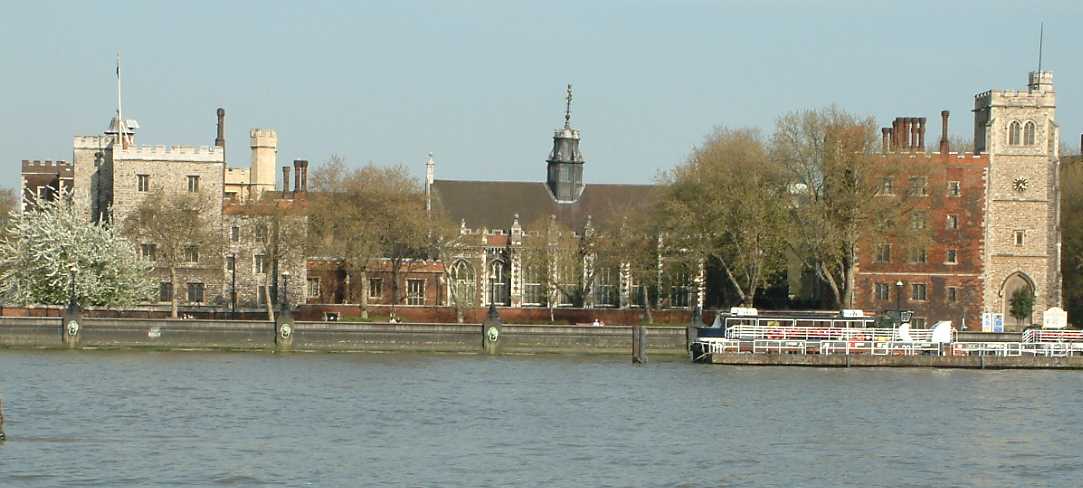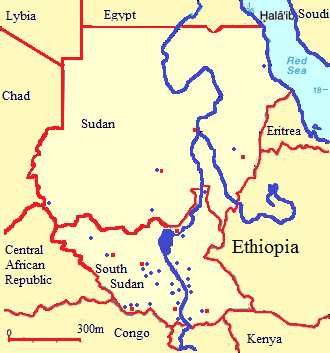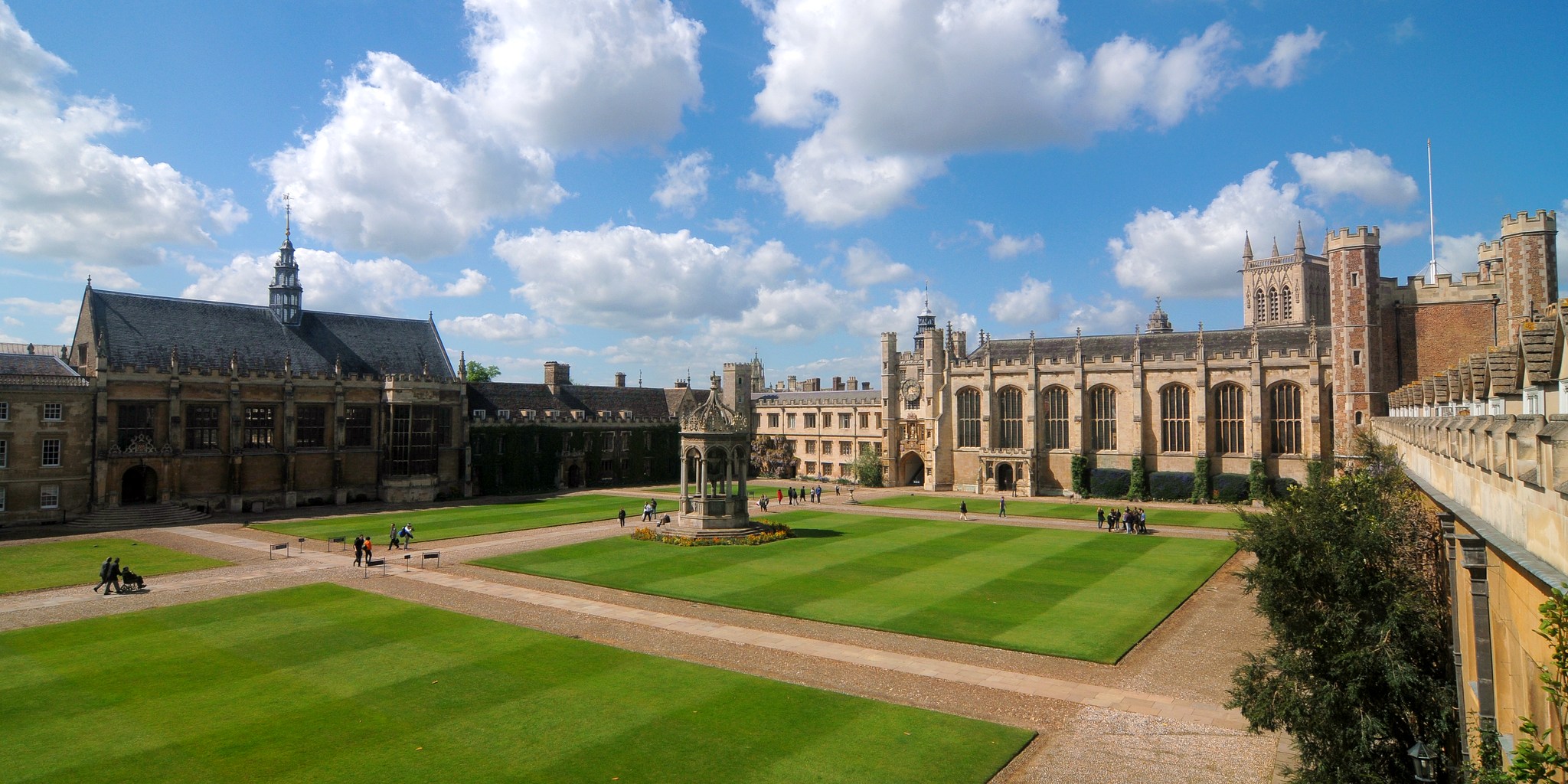|
Anthony Poggo
Anthony Poggo (born 1964) is a South Sudanese Anglican bishop. Since 2022, he has been the secretary general of the Anglican Consultative Council and head of the Anglican Communion Office. Early life and education During his childhood, Poggo's father, an Anglican priest, took his children to Uganda to flee the first Sudanese Civil War. They returned in 1973. Poggo was educated at the University of Juba and Oxford Brookes University. Career Poggo worked for the Scripture Union. He was ordained a deacon in 1995 and a priest in 1996. He then joined Across, a Christian mission agency working in Sudan, eventually becoming its executive director. In 2007 he was elected bishop of Kajo-Keji, a position he held until 2016 when he moved to Lambeth Palace to support Archbishop of Canterbury Justin Welby as his adviser on Anglican Communion affairs. In 2022, he succeeded Josiah Idowu-Fearon Josiah Atkins Idowu-Fearon (born 17 January 1949) is a Nigerian Anglican bishop. Since 2015, he h ... [...More Info...] [...Related Items...] OR: [Wikipedia] [Google] [Baidu] |
The Right Reverend
The Right Reverend (abbreviated The Rt Revd, The Rt Rev'd, The Rt Rev.) is a style (manner of address), style applied to certain religion, religious figures. Overview *In the Anglican Communion and the Roman Catholicism in the United Kingdom, Catholic Church in Great Britain, it applies to bishops, except that ''The Most Reverend'' is used for archbishops (elsewhere, all Roman Catholic Church, Catholic bishops are styled as ''The Most Reverend''). *In some churches with a Presbyterian heritage, it applies to the current Moderator of the General Assembly, such as **the current Moderator of the United Church of Canada (if the moderator is an ordained minister; laypeople may be elected moderator, but are not styled Right Reverend) **the current Moderator of the Presbyterian Church in Ireland **the current Moderator of the General Assembly of the Church of Scotland **the current Moderator of the Presbyterian Church of East Africa **the current Moderator of Presbyterian Church of G ... [...More Info...] [...Related Items...] OR: [Wikipedia] [Google] [Baidu] |
Lambeth Palace
Lambeth Palace is the official London residence of the Archbishop of Canterbury. It is situated in north Lambeth, London, on the south bank of the River Thames, south-east of the Palace of Westminster, which houses Parliament, on the opposite bank. History While the original residence of the Archbishop of Canterbury was in his episcopal see, Canterbury, Kent, a site originally called the Manor of Lambeth or Lambeth House was acquired by the diocese around AD 1200 and has since served as the archbishop's London residence. The site is bounded by Lambeth Palace Road to the west and Lambeth Road to the south, but unlike all surrounding land is excluded from the parish of North Lambeth. The garden park is listed and resembles Archbishop's Park, a neighbouring public park; however, it was a larger area with a notable orchard until the early 19th century. The former church in front of its entrance has been converted to the Garden Museum. The south bank of the Thames along this re ... [...More Info...] [...Related Items...] OR: [Wikipedia] [Google] [Baidu] |
21st-century Anglican Bishops
The 1st century was the century spanning AD 1 (Roman numerals, I) through AD 100 (Roman numerals, C) according to the Julian calendar. It is often written as the or to distinguish it from the 1st century BC (or BCE) which preceded it. The 1st century is considered part of the Classical era, epoch, or History by period, historical period. The 1st century also saw the Christianity in the 1st century, appearance of Christianity. During this period, Europe, North Africa and the Near East fell under increasing domination by the Roman Empire, which continued expanding, most notably conquering Britain under the emperor Claudius (AD 43). The reforms introduced by Augustus during his long reign stabilized the empire after the turmoil of the previous century's civil wars. Later in the century the Julio-Claudian dynasty, which had been founded by Augustus, came to an end with the suicide of Nero in AD 68. There followed the famous Year of Four Emperors, a brief period of civil war and inst ... [...More Info...] [...Related Items...] OR: [Wikipedia] [Google] [Baidu] |
Living People
Related categories * :Year of birth missing (living people) / :Year of birth unknown * :Date of birth missing (living people) / :Date of birth unknown * :Place of birth missing (living people) / :Place of birth unknown * :Year of death missing / :Year of death unknown * :Date of death missing / :Date of death unknown * :Place of death missing / :Place of death unknown * :Missing middle or first names See also * :Dead people * :Template:L, which generates this category or death years, and birth year and sort keys. : {{DEFAULTSORT:Living people 21st-century people People by status ... [...More Info...] [...Related Items...] OR: [Wikipedia] [Google] [Baidu] |
1964 Births
Events January * January 1 – The Federation of Rhodesia and Nyasaland is dissolved. * January 5 - In the first meeting between leaders of the Roman Catholic and Orthodox churches since the fifteenth century, Pope Paul VI and Patriarch Athenagoras I of Constantinople meet in Jerusalem. * January 6 – A British firm, the Leyland Motor Corp., announces the sale of 450 buses to the Cuban government, challenging the United States blockade of Cuba. * January 9 – ''Martyrs' Day'': Armed clashes between United States troops and Panamanian civilians in the Panama Canal Zone precipitate a major international crisis, resulting in the deaths of 21 Panamanians and 4 U.S. soldiers. * January 11 – United States Surgeon General Luther Terry reports that smoking may be hazardous to one's health (the first such statement from the U.S. government). * January 12 ** Zanzibar Revolution: The predominantly Arab government of Zanzibar is overthrown by African nationalist rebels; a ... [...More Info...] [...Related Items...] OR: [Wikipedia] [Google] [Baidu] |
Province Of The Episcopal Church Of South Sudan
The Province of the Episcopal Church of South Sudan, formerly known as Episcopal Church of Sudan, is a province of the Anglican Communion located in South Sudan. The province consists of eight Internal Provinces (each led by an archbishop) and 61 dioceses (each headed by a bishop). The current archbishop and primate is Justin Badi Arama. It received the current naming after the inception of the Province of the Episcopal Church of Sudan, on 30 July 2017. Archbishop Primate The episcopal see of the Archbishop of South Sudan is at Juba. The incumbent serves the whole church as its Primate, but is Metropolitan archbishop only for his own diocese (Juba), as the diocese of Juba stands alone as extra-provincial. He is titled "Archbishop & Primate of South Sudan, and Bishop of Juba". He represents the province to the rest of the Anglican Communion, and serves on the international Primates' Meeting. In January 2018, the Episcopal Church of South Sudan elected Bishop Justin Badi Arama of t ... [...More Info...] [...Related Items...] OR: [Wikipedia] [Google] [Baidu] |
Justin Welby
Justin Portal Welby (born 6 January 1956) is a British bishop who is the 105th Archbishop of Canterbury. He has served in that role since 2013. Welby was previously the vicar of Southam, Warwickshire, and then Bishop of Durham, serving for just over a year. ''Ex officio'', he is the Primate of All England and the symbolic head ''primus inter pares'' of the worldwide Anglican Communion. Welby was educated at the University of Cambridge where he read history and law. Later in life, he studied for ordination at St John's College, Durham. After several parochial appointments, he became Dean of Liverpool in 2007 and Bishop of Durham in 2011. Welby's theology is reported as representing the "open evangelical" tradition within Anglicanism. Having worked in business before his ordination, some of his publications explore the relationship between finance and religion and, as a member of the House of Lords, he sat on the panel of the 2012 Parliamentary Commission on Banking Standards. ... [...More Info...] [...Related Items...] OR: [Wikipedia] [Google] [Baidu] |
Archbishop Of Canterbury
The archbishop of Canterbury is the senior bishop and a principal leader of the Church of England, the ceremonial head of the worldwide Anglican Communion and the diocesan bishop of the Diocese of Canterbury. The current archbishop is Justin Welby, who was enthroned at Canterbury Cathedral on 21 March 2013. Welby is the 105th in a line which goes back more than 1400 years to Augustine of Canterbury, the "Apostle to the English", sent from Rome in the year 597. Welby succeeded Rowan Williams. From the time of Augustine until the 16th century, the archbishops of Canterbury were in full communion with the See of Rome and usually received the pallium from the pope. During the English Reformation, the Church of England broke away from the authority of the pope. Thomas Cranmer became the first holder of the office following the English Reformation in 1533, while Reginald Pole was the last Roman Catholic in the position, serving from 1556 to 1558 during the Counter-Reformation. ... [...More Info...] [...Related Items...] OR: [Wikipedia] [Google] [Baidu] |
Anglican Communion
The Anglican Communion is the third largest Christian communion after the Roman Catholic and Eastern Orthodox churches. Founded in 1867 in London, the communion has more than 85 million members within the Church of England and other autocephalous national and regional churches in full communion. The traditional origins of Anglican doctrine are summarised in the Thirty-nine Articles (1571). The Archbishop of Canterbury (, Justin Welby) in England acts as a focus of unity, recognised as ' ("first among equals"), but does not exercise authority in Anglican provinces outside of the Church of England. Most, but not all, member churches of the communion are the historic national or regional Anglican churches. The Anglican Communion was officially and formally organised and recognised as such at the Lambeth Conference in 1867 in London under the leadership of Charles Longley, Archbishop of Canterbury. The churches of the Anglican Communion consider themselves to be part of ... [...More Info...] [...Related Items...] OR: [Wikipedia] [Google] [Baidu] |
Province Of Canterbury
The Province of Canterbury, or less formally the Southern Province, is one of two ecclesiastical provinces which constitute the Church of England. The other is the Province of York (which consists of 12 dioceses). Overview The Province consists of 30 dioceses, covering roughly two-thirds of England, parts of Wales, all of the Channel Islands and continental Europe, Morocco, Turkey, Mongolia and the territory of the former Soviet Union (under the jurisdiction of the Diocese of Gibraltar in Europe). The Province previously also covered all of Wales but lost most of its jurisdiction in 1920, when the then four dioceses of the Church in Wales were disestablished and separated from Canterbury to form a distinct ecclesiastical province of the Anglican Communion. The Province of Canterbury retained jurisdiction over eighteen areas of Wales that were defined as part of "border parishes", parishes whose ecclesiastical boundaries straddled the temporal boundary between England and Wale ... [...More Info...] [...Related Items...] OR: [Wikipedia] [Google] [Baidu] |
Anglican Consultative Council
The Anglican Consultative Council (ACC) is one of the four "Instruments of Communion" of the Anglican Communion. It was created by a resolution of the 1968 Lambeth Conference. The council, which includes Anglican bishops, other clergy, and laity, meets every two or three years in different parts of the world. The Anglican Consultative Council has a permanent secretariat (the Anglican Communion Office), based at Saint Andrew's House, London, which is responsible for organizing meetings of the "Instruments of Communion". The Archbishop of Canterbury is ''ex officio'' the President of the Council. The current chair of the ACC is Paul Kwong. Membership Members of the council include the Archbishop of Canterbury and a certain number of representatives of each of the Anglican provinces, depending on the size of the province. The largest provinces are entitled to appoint three representatives, consisting of one bishop, one priest, and one layperson. Intermediate sized provinces may ... [...More Info...] [...Related Items...] OR: [Wikipedia] [Google] [Baidu] |
Oxford Brookes University
Oxford Brookes University (formerly known as Oxford Polytechnic (United Kingdom), Polytechnic) is a public university, public university in Oxford, England. It is a new university, having received university status through the Further and Higher Education Act 1992. The university was named after its first principal, John Henry Brookes, who played a major role in the development of the institution. Oxford Brookes University is spread across four campuses, with three primary sites based in and around Oxford and the fourth campus located in Swindon. Oxford Brookes University planned to demolish its Wheatley, Oxfordshire, Wheatley campus and build houses on the site; the local council refused planning permission, but Oxford Brookes appealed, and won in 2020. the Brookes Web site said that the institution had 16,900 students, 2,800 staff and over 190,000 alumni in over 177 countries. The university is divided into four faculties: Oxford Brookes Business School, Health and Life Scie ... [...More Info...] [...Related Items...] OR: [Wikipedia] [Google] [Baidu] |





